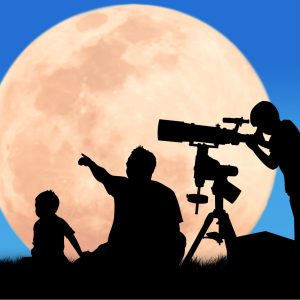Henrietta Lacks was a proud woman. She did not know much about science, but she loved her family, and lived a satisfactory life by all accounts of those who knew her. That is, until she was diagnosed with cervical cancer. The disease ravaged her body, and with whatever strength she had left, she endured radium treatment to seek a cure that did not work. During these treatments, cells were biopsied from the tumor without her knowledge, a practice that was unfortunately all too frequent, especially when it involved patients of African American decent. These cancerous immortal cells were tested and used for innumerable scientific studies. They are what scientists call “HeLa” cells, and they are an invaluable research tool. However, their origin story brings up many ethical questions as to how to use the scientific knowledge that was gained using methods that would be in question by today’s moral standards, and how to make reparations and compensation to individuals who contributed to these scientific resources.
There is no doubt that a large amount of scientific data would not be “known” without the use of HeLa cells. Any experiment involving human tissue culture would have benefited, whether directly by experimenting on them, or from simply having a better understanding of the methods involved in keeping immortal cells alive. The experiments that led to the polio vaccine included HeLa cells. Many scientific studies today start by investigating procedures on HeLa cells. To say that this is a vital part of current scientific research would be an understatement. In this current scientific world, these cells represent years of hard work and knowledge, and are often shared freely from one scientist to another. Thus, they are effectively sharing their knowledge as well.
However, even this egalitarian view of sharing knowledge, in this case experimental material, is not a realistic view of how the HeLa story unfolded. It is actually a cautionary tale of the pitfalls of sharing scientific material, and information in general. Dr. Gey, the first doctor to experiment on Ms. Lacks’s cells, wanted to share these cells to all who needed them. Indeed, many samples were handed out for proposed experiments. In these cases, Dr. Gey decided who was worthy of the cells and their accumulated information. But these cells, like information, did not die. They could be replicated innumerous times. Dr. Gey no longer had control once the cells were out in the world – in theory anyone could get them from someone else. HeLa cells spread throughout the scientific community. But just like information, the cell population changed over time. Mutations occurred during replication. Cell cultures were accidentally contaminated with other cell lines. The information gleaned from these experiments on the older HeLa cell cultures did not match the previous experimental results. We scientists are still working out, vial by vial, what kind of HeLa cells we might have, and what their provenance might be.
In some cases, scientists have profited from these experiments. Certainly, the polio vaccine has made billions of dollars for the scientists and pharmaceutical companies that make it. The family of Henrietta Lacks has received none of this money. In fact, they did not know about the amazing discovery of HeLa cells until scientists started calling them for blood samples to help figure out some of the contamination problems. They suffered greatly when the matriarch of the family succumbed to her cancer. She still had young children that they had to care for. They were in a lower income class at the time and could use the money for basic necessities like healthcare. They were initially confused about what it meant that her cells were immortal and all around the world. This concept is still a hard problem to conceptualize completely. Books and movies have been trying to relay the concept for years. In 2013, researchers published the entire sequence of HeLa cells without even informing the family, even though part of her genetic information was in their genetic information as well. Only recently, with the help of court rulings, was the family able to get some control of the distribution of HeLa’s genetic information.
The story of Henrietta Lacks and her famous cells is a cautionary one. It is a travesty that no one asked her permission to take the cells originally. It seems that was the standard practice at that time, and since she was toward the end of her suffering, I am not sure she would have been in the correct frame of mind for consent. Regardless, no one could have predicted the amazing amount of discoveries and information that have been garnered from those small samples over time. But here we are, profiting with cash and health from her uninformed sacrifice. John Wilbanks proposes that we all donate our sequencing and health information to a worldwide database for the good of the world. Of course, with our consent. The problem is, once it is out there, you cannot take it back (just like sharing pictures in bad taste over the internet). One cannot know what information is hidden in there, what nefarious interests will get their hands on it, or how it will be used for good or evil in the future. Information, just like her cells, changes over time, depending on who is using it, and how technology can interpret it. Dr. Gey seems to have had good intensions when he took Ms. Lacks’s cells. He handed out the samples for free to “deserving” experimenters. But why did he get to say what happened to them? The hospital administrators wanted him to not be so free with his samples, hoping that they could be used for some profit in the future. It turns out that they were right, those cells have been used by countless pharmaceutical companies to test drug treatments and have made much money in the process. Unfortunately, the government is not equipped to make decisions on increasingly changing technical problems like genetic sequence data regulation, nor on what to do with our past medical oversights. Just ask the government watch dogs! Pharmaceutical companies want everything to be proprietary so they can get the most money out of it. And philanthropists just keep throwing good money after bad to feel good about solving world problems.
We really are in an ethical dilemma here, and time is running out. Should we share our biological data, and if so, who gets to decide what happens to it, who gets the money it makes, and how will this affect others who genetically carry our health concerns and genetic material. There is good to be done here for sure, but not without careful consideration of the negatives towards full disclosure. The doctors, pharmaceutical companies, and hospital administrators may encourage it, but Henrietta Lacks might say “Patients beware!”
References
Contributor, Q. (2012, August 9). How much money did Jonas Salk Potentially Forfeit by Not Patenting the Polio Vaccine? Retrieved from Forbes: www.forbes.com
Henrietta Lacks. (n.d.). Retrieved from Wikipedia: en.m.wikipedia.org/wiki/Henrietta_Lacks
Skloot, R. (2010). The Immortal Life of Henrietta Lacks. New York: Crown Publishing Group.
Wilbanks, J. (2012). Let’s pool our medical data. (J. Wilbanks, Performer) Retrieved from https://www.ted.com/speakers/john_wilbanks
To join the conversation about advancing health equity, please join our next Straight Talk virtual event, Straight Talk: Diversity in Clinical Trials- Advancing Health Equity. Tickets are on sale now at CTScienceCenter.org.

Jennifer Kirkland is an MBA candidate at George Washington School of Business, concentrating in healthcare. She has a passion for science policy and advocacy and strives to help translate business into science and science into business. Having a master’s degree in Biology and decades of research experience, she understands how research works. She is the Development intern at the Connecticut Science Center, a wife, a mom, and a curious questioner.



